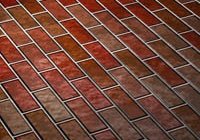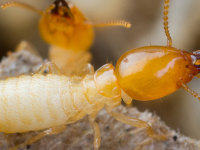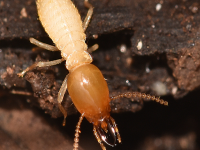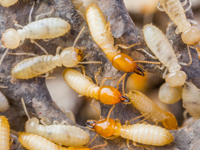-
Choosing the Best Material for Your Decking Project: A Comprehensive Guide - June 16, 2024
-
Sustainable Decking Solutions: A Comprehensive Guide to Eco-Friendly Materials - June 16, 2024
-
Avoiding Remodeling Nightmares: A Comprehensive Guide to Selecting a Reliable Contractor - June 10, 2024
-
9 Steps to Plan Out Your Home Improvement Projects - June 9, 2024
-
Low-Maintenance Deck Design: Enjoy Your Outdoor Space with Minimal Upkeep - June 9, 2024
-
Transform Your Home Like a Pro Even if You’re Clueless - June 8, 2024
-
Step-by-Step DIY Deck Building: Tips, Tricks, and Essential Considerations - June 8, 2024
-
Transform Your Bathroom: Essential Tips for a Successful Remodel - May 28, 2024
-
Unraveling the Mystery: Your Guide to Taking On a Roofing Project Like a Pro - May 27, 2024
-
13 Creative Ways To Give Your Floors A New Look - May 21, 2024
Organic Termite Control
Do organic termite control methods really work? When it comes to completely exterminating colonies of termites within their home, the reality of the situation is that they certainly can’t hurt. However, it’s hard to say if they’ve truly worked without a professional termite inspector’s opinion, as oftentimes termite colonies can branch out to live in areas of your home that are difficult to reach. However, organic termite control techniques are certainly good for helping to prevent termites from entering your home. Here are a few good examples of how to do just that.
One prominent organic termite control method is to be very careful about the type of wood you use. Are you planning on building a deck? Are you remodeling your home from the ground up? Research your wood carefully, as there are many types that are naturally resistant toward termites and other parasites. Examples of types of wood to use in this sort of situation include cypress, sequoia, cedar, maple, walnut, and many others. In addition to using termite resistant wood, you can also treat indoor wood with a high quality sealer to keep out bugs and prevent wood softening, mold, rot, and more. Other materials that withstand attacks include termite resistant concrete, steel, and more.
Another example of organic termite control is the use of orange oil. This substance is created from chemicals found in orange rinds. Spraying orange oil along the foundations of your home and in vulnerable areas such as basements, attics, bathrooms, kitchens, garages, and other warm, humid places is a great way to prevent termite entry. Unfortunately, the only downside to using orange oil is that it evaporates quickly. This means that there is only a limited amount of time for worker termites to encounter it or ingest wood that has been soaked in it. However, as it is a slow acting poison, it will nevertheless have time to infect the entire colony eventually.
More organic termite control methods is to keep an eye on your yard and make absolutely sure you have it safeguarded with termites in mind. For example, keeping composts, mulch piles, and stacks of firewood near your home is never a good idea, as it provides termites with a place to feed before they gradually invade your home. If you must have these items, keep them as far away from your home as possible. In addition to this, try to prevent standing puddles of water from remaining too long in the soil near the foundation of your home. You can prevent this from removing damp soil from the foundation and keeping your rain gutters turned away from the house.
These are only a few examples of organic termite control techniques. In using them, you may be able to prevent termites from entering your home. After all, it’s widely agreed that preventing them from entering your home is the safest and most affordable method there is. Learn more today!

























